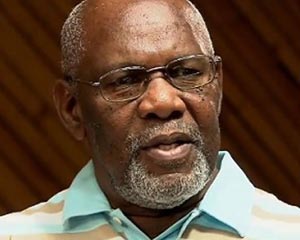
Zapu leader Dumiso Dabengwa says not more than 50 disgruntled former Zipra guerrillas took up arms against former president Robert Mugabe’s government and that did not warrant Mugabe to activate the North Korean-trained Fifth Brigade who descended on the region committing Gukurahundi massacres in the 1980s.
By NQOBANI NDLOVU
An estimated 20 000 people were killed during the military crackdown against the so-called dissidents.
Speaking at a policy dialogue forum organised by the Southern African Political Economy Series (Sapes Trust) in conjunction with the Women in Leadership Development (Wild) in Bulawayo on Friday, Dabengwa said the so-called dissidents were frustrated by Mugabe’s harassment of Zapu members.
He said the (about 50) dissidents rebelled against Mugabe when he fired from Cabinet then Zapu leader and former vice-president Joshua Nkomo, who was Home Affairs minister as well as most of his colleagues.
“Nkomo was then being hunted down. He had to escape and go to Britain. We remained in prison, went for trial which went for several weeks, if not months and [were] acquitted by the High Court, but we were still kept in detention. I spent four years 10 months in jail after having been acquitted,” Dabengwa said.
“During this period, there were some Zipra guys who got frustrated and decided to take up arms and go back to the bush and the number was not even a 100. It was very much less. I think somewhere in the region of 50, and these were the dissidents who justified the Fifth Brigade. These are the people that they created the Fifth Brigade for; to deal with about 50 Zipra guys who had gone to the bush. That is what happened. This was an excuse for a one-party state. They did not want any opposition.” He said Nkomo turned down an offer to become the country’s president in a coalition government after the 1980 elections.
Dabengwa said the late Father Zimbabwe — as Nkomo was affectionately known — instead chose a ministerial post, only to be fired by then prime minister Mugabe two years later in 1982 on charges of plotting to overthrow his government.
- Chamisa under fire over US$120K donation
- Mavhunga puts DeMbare into Chibuku quarterfinals
- Pension funds bet on Cabora Bassa oilfields
- Councils defy govt fire tender directive
Keep Reading
Nkomo was later forced to flee the country for his safety.
Mugabe claimed huge quantities of arms of war had been discovered on farms owned by Zapu and Zipra — the party’s military wing — meant to be used to overthrow his government.
Dabengwa said the arms had been deliberately planted by Mugabe’s government.
He said Mugabe’s intention to create a one-party state was evident as early as 1979 when he wanted to outsmart PF Zapu to contest the 1980 elections as Zanu PF without the latter’s knowledge.
“At Lancaster, we agreed that we would contest the elections as a united front, as the Patriotic Front but in the nominations for the elections, Mugabe deliberately got to the offices and said Zanu was going to stand as Zanu PF and there were only a few hours left before nominations closed.
“I think it was someone in the British governors’ office who then asked Nkomo if he had decided we were going to contest the elections as Zanu PF. Nkomo was furious. He summoned Msika and said ‘this is what has happened, go and verify and if it is true, go and register and tell them we will be participating in the elections as PF Zapu’,” Dabengwa said.
“Msika did that and found it was true. Mugabe had registered to contest the elections as Zanu PF. After the election, after the victory, Mugabe then enticed Nkomo to come into a coalition government. He said we fought the struggle together and we can’t leave you out, come in.’
“First, Nkomo was supposed to be president, and Nkomo said ‘I don’t want to be a president’. He preferred one of the ministerial posts and he was given Home Affairs.”
But Nkomo was then fired by Mugabe alongside the late Josiah Chinamano and Joseph Msika, transport and natural resources ministers respectively, on charges of plotting to overthrow his government, culminating in the Gukurahundi massacres, Dabengwa said.











